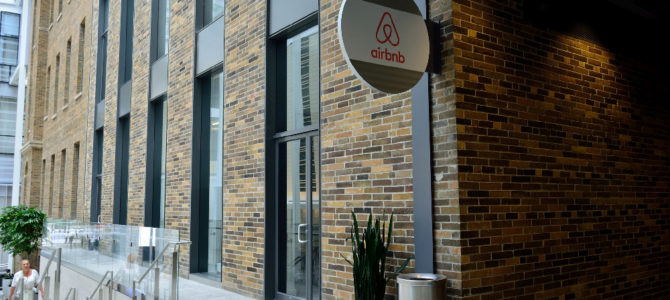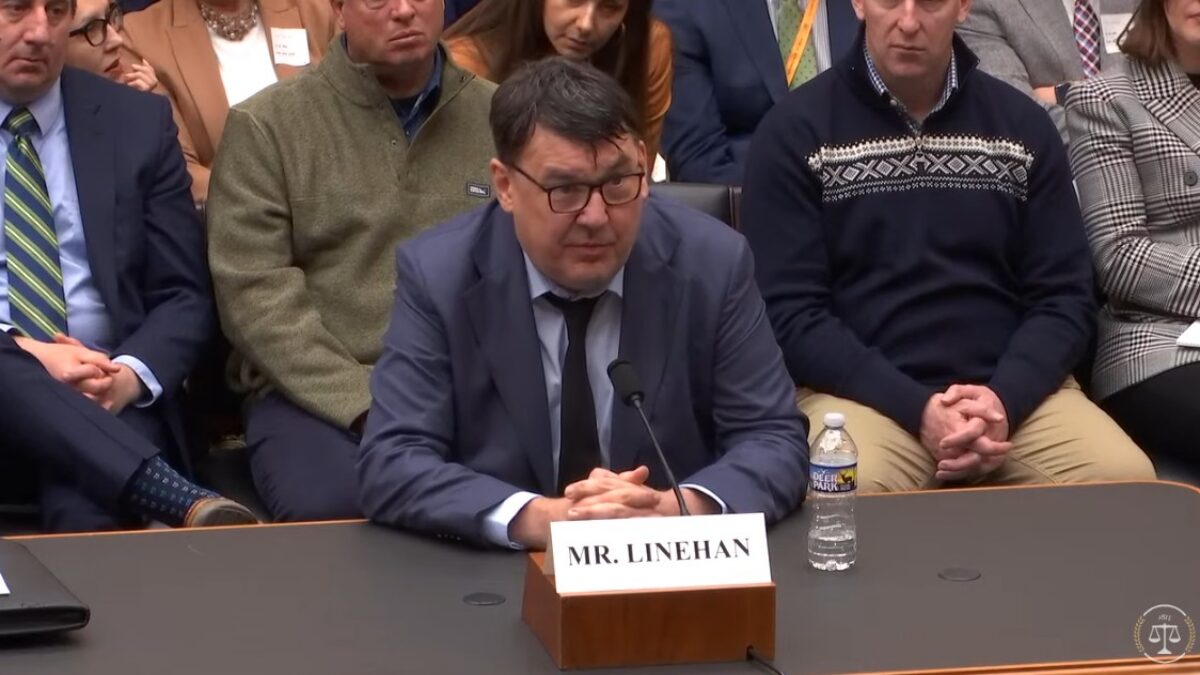
Millennials pride themselves on being innovative at solving problems, but sometimes the millennial way isn’t always the best way. This is especially true for a new startup that’s offering debt-strapped millennials an inventive way to finance unaffordable down payments.
Loftium, now located only in Seattle, provides buyers up to $50,000 for a down payment as long as they rent an extra bedroom through Airbnb for one to three years and use two-thirds of the income to pay off the debt. According to the contract, homeowners must agree to rent their room every day of the year, except for eight “freebie” nights. If they have to miss a night because of circumstances beyond their control, their contract is extended to cover the missed time or they pay a nightly fee if they’ve already used up their freebies.
If homeowners don’t make the money necessary to pay back Loftium, they won’t be penalized. The folks at Loftium assume all the burden. But that’s only if customers don’t come flocking to the approximately $150-per-night room. If homeowners want out of the contract before it’s up, they have to pay their share of nights remaining and 15 percent of that amount—all within a week. If they don’t, Loftium takes a second lien (behind the mortgage company) on their house.
Fannie Mae Likes It. That Should Make You Worried
Fannie Mae, which played a role in the 2008 mortgage crisis by forcing banks to lend to low-income buyers despite low down payments and poor credit histories, likes the new startup because they see it as a “creative way” to make home-buying accessible to young people burdened by student loans.
“Many renters struggle to generate savings in the current environment of high rental rates and student debts,” one executive told The New York Times. “As opposed to what happened in previous generations, there is almost a fear associated with it because they have this really big debt.”
They should be afraid! Any scheme that lures you to accumulate debt on top of current debt is not simply a lifestyle choice. It’s a moral choice. Debt is essentially a moral issue—and this arrangement is certainly a debt.
Loftium likes to play a little word game by saying this is not a loan: “You don’t need to ‘repay’ anything to us,” CEO Yifan Zhang said. “You simply agree to share the income for a set period of time. We hold the risk if the Airbnb room doesn’t pay us back.”
Notice the weasel wording: if the “room” doesn’t pay us back. The room doesn’t pay anything. The homeowner does by renting the room, and if the homeowner breaks the contract, the homeowner has to repay Loftium what he owes. Also, they are not “sharing” income. The homeowner is earning income then paying two-thirds of what is owed to Loftium.
Any time you take money from an entity and have to pay it back in any form, it is a debt. It might not be a traditional loan, it might be interest-free, it might be based on service agreements, but it’s still a debt that must be paid one way or another. This alone involves risk. The money might not be coming out of your wallet directly, but it is coming out of your earnings from your “asset.”
There Is Good Borrowing and Bad Borrowing
Of course, borrowing money isn’t in itself wrong. As Paul Johnson says in Forbes, “It’s a natural part of the capitalist system . . . but if you borrow, three conditions are necessary for your actions to be righteous”:
- The money borrowed should be of reasonable size commensurate with your resources and prospects.
- From the outset a program of repayment should be in place.
- The repayment plan should have priority over any other commitment, especially any personal spending plans.
Are these three conditions being met by people seeking a loan with Loftium when they are already burdened by debt so high they can’t afford a down payment? What are some of the risks that could put this scheme—and the borrower—at risk?
Loftium says that when the contract ends, “you don’t ‘owe’ us anything. There’s no payback if we don’t make enough money on the Airbnb income.” But you have been paying them back—with risk. Yes, that’s nice for them to carry the burden if the whole thing is a flop even though you’ve abided by the contract, but there’s a lot of gray area here that could land you in a contract dispute.
According to their website, several contractual requirements involve risk: you have to “communicate with guests before and during their stay,” “ensure that the bedroom and bathroom are clean (including paying for repairs),” and “be friendly and hospitable to guests so that they have a pleasant stay.”
What if the guest doesn’t think you were friendly or your place wasn’t clean? What if she writes a nasty review, causing you to lose customers? Will the contract be broken due to your own fault, not that of Loftium’s algorithms, thereby putting you in the position of violating the contract and having to pay up?
In addition to these risks, what happens if government regulators have a change of heart about Airbnb and come descending onto your makeshift hotel, making it financially or practically impossible for you to continue renting? Can you afford the fees and fines the government issues?
So you see, while you might be “sharing” income and not actively paying Loftium back, you must do many things to make this work—and some of these aren’t even in your control. When you look into these details of the contract, the outcome could be pretty bleak.
For Financial Safety, to Meet Obligations, Prioritize Debt
Finally, for this to be responsible debt, paying back the loan should be your top priority. This condition is difficult to meet because if you have student loans, you’ve already violated this condition. Paying off your student loans is no longer your top priority. Not only this, if for some reason you run into contractual issues or have to cancel the down payment contract, you have to move this obligation to the front to pay Loftium what you owe. If you can’t, you might be heading for foreclosure.
Having said all this, it still might be possible. You could make enough money to cover the repayment plans for all three loans (school, mortgage, down payment). But if we are aiming to be responsible people and not landing ourselves in a possible debt crisis, shouldn’t we be avoiding schemes that lure us into greater financial risk instead of looking for ways to lessen our debt?
This, ultimately, is my biggest problem with this “shared financing” plan and any other gimmick that makes getting into more debt cool. We keep moving the line on what’s good in our culture. Generations past believed just having debt was immoral—“Neither borrower nor lender be.” Then we moved the line. A little debt is good as long as you pay the minimum owed every month. Then we moved it again. A lot of debt is good as long as you can pay it back eventually. Now, we’re not even talking about debt as a moral issue. It’s just a “personal choice.” A lifestyle.
Too many millennials justify irresponsible debt because they claim they’ve been dealt an unfair hand in this economy, as if they’re the only generation to ever face financial difficulties. Older generations faced similar problems, if not worse, and many didn’t make immoral and unwise choices to get what they couldn’t afford (although some did, hence the debt crisis America faces). No matter the difficulties in any generation, making wise and moral choices should be a constant.
Paying Debts Is a Moral Obligation
Yet some millennials don’t blink an eye at accumulating debt—student loans in particular—and they’re not great at paying them back. The Consumer Financial Protection Bureau reports that one in four student loan borrowers have either defaulted or are barely making payments, “even though virtually all borrowers with federal student loans are able to make monthly payments indexed to their earnings.”
Given this statistic alone, how wise is it to offer them an opportunity to accumulate even more debt? Paying their down payment can be like cheese in a trap. Shouldn’t the goal be to lessen our debt instead of adding to it? Some might say that renting is throwing away money when you could be financing a house, but that’s only true if you’re not already saddled with debt and can meet all the moral conditions of financing a home.
Does this mean I’m a dinosaur who wants to inhibit young people by strapping them to an old way of doing things? Not at all. I applaud millennial innovation—when it truly works. This generation is free-spirited without being self-righteous. They’re authentic, socially conscious, and adventurous. As an authenticity-loving Gen-Xer who grew up in a cynical culture that preferred the underground of individualism to free social expression, I find their positive attitudes about themselves and the world refreshing and inspiring.
You Can Be Creative With Less Risk
When millennials do it right, they really do it right—and it’s fun to watch. They’re clever at discovering new ways to get what they want. Consider some of these creative solutions dreamed up by people who found a way to live in the city or go to college without getting into or adding to their debt. One young couple decided to pay less for a home in an urban area by joining the tiny house movement. Another couple bought a shipping container and had it delivered to an empty parking lot that they leased, and they converted it into a tiny house.
One adventurous millennial couple preferred to be on the move and set up camp in their groovy van: “Van dwelling is an increasingly popular lifestyle choice among tech workers.” An engineer at Tesla “paid off $14,000 of student loans by living in a Sprinter van he bought off eBay for five months. He showered at Tesla’s gym.”
Another guy used his savings to build a house in a friend’s backyard. He pays no rent and is going to graduate from college debt-free. And for those who don’t mind lots of people around, there’s always communal living to reduce the cost of rent so you can pay off those student loans.
For those not interested in such creative ventures, there’s old-fashioned frugality. We really do need to make responsible living cool again, whether it’s in a tiny house, a rental, or your parents’ basement. If you can’t afford to own that nice house, wait. If you can’t afford to go to a private college, go to a public one or attend a community college.
If you can’t afford to live in the city where most millennials prefer to live, move and take one of those high-paying jobs in other areas of the country. Make the ‘burbs cool again. If you can’t have the city, bring the city to you. There’s a small town just down the road from where I live in North Carolina that’s being transformed into a mini-Seattle. That’s millennial innovation.
The possibilities are endless, and they don’t require going into further debt. These are truly lifestyle choices without the moral entanglements of irresponsible debt and furthering a “borrowing” mentality just so you can have what your parents have—or expect you to have.
On this point, it might help if parents stop expecting their kids to follow in their footsteps in this difficult economy. If they have to rent or live in a pod or a tiny house for a few years, let them. Millennials love adventure—let them have it. Debt free.









